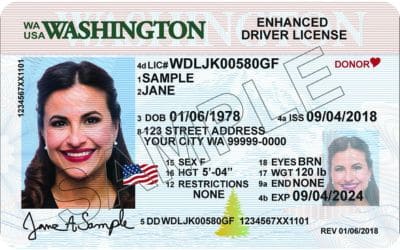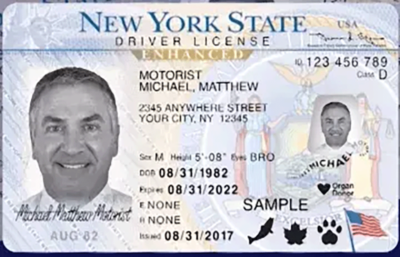Overview of Washington ID scanning laws
Washington has 3 current laws and one pending law which we consider relevant to ID verification, in addition to other laws which may related to age verification, identity verification, KYC, privacy, and biometrics.
Can you scan IDs in Washington?
Yes. There are no laws prohibiting or regulating the electronic scanning of an ID in Washington.
Can you save data from a scanned ID in Washington?
Yes. There are no current laws which limit or restrict saving data from a scanned ID in Washington.
Does Washington offer affirmative defense for ID scanning?
No. Washington has no affirmative defense laws related to ID scanning.
What types of IDs does Washington issue?
Washington issues drivers licenses and state IDs, including REAL ID.
Individual Washington ID verification laws

Biometric age verification by liquor licensees
This bill would allow for biometric age verification systems for liquor sales in combination with an age-verifying ID scanner.

Minors in age-restricted establishments
It is a misdemeanor in Washington to serve or allow anyone under 21 in any off-limits establishment.

Fake or borrowed IDs
In Washington, it is a misdemeanor to transfer, forge, alter, or counterfeit any identification document to a minor for the purpose of obtaining alcohol.

ID scanning for car rentals
Washington requires car rental providers keep records, including the renter’s name, address, and drivers license number.

Age restrictions for social media
This bill would require social media companies provide data and privacy protections to all users under 18.
Data privacy laws in Washington
Washington has one data privacy law, HB 1616, which outlines an individual’s rights to their personal information, including:
- The right to know what personal information a covered entity processes about the individual.
- The right to access and obtain the individual’s personal information processed by a covered entity, in a machine-readable format.
- The right to refuse consent for any processing of the individual’s captured personal information that is not essential to the primary transaction.
- The right to correct inaccurate personal information.
- The right to require a covered entity and/or data processor to delete all captured information, unless the entity capturing the information is otherwise instructed by law.
- The right not to be subject to surreptitious surveillance.


